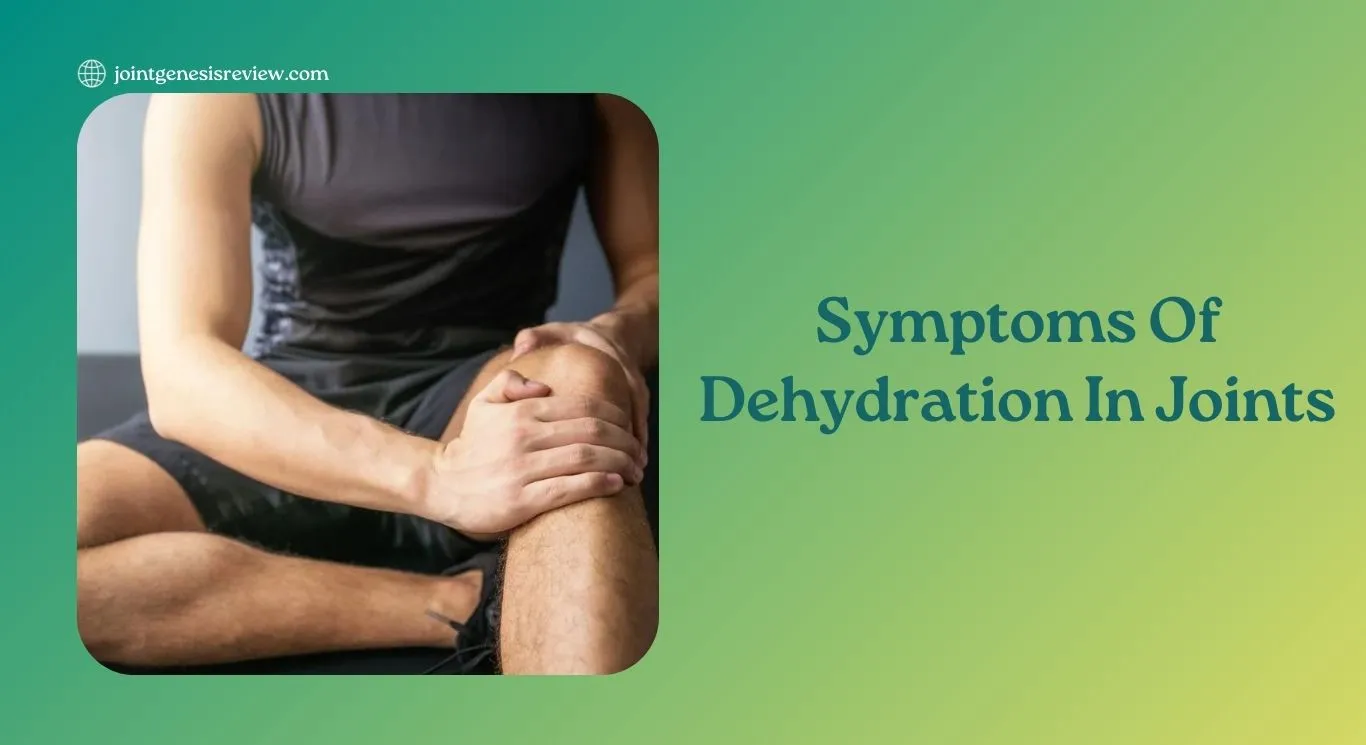What Are The Symptoms Of Dehydration In Joints?
Understanding the Symptoms of Dehydration in Joints can help individuals take proactive steps to maintain optimal joint health.

Disclaimer: This article has been generated with the assistance of AI tools. While our research team has fact-checked the content, readers should independently verify information for accuracy and reliability.
Keeping your joints healthy is very important for your overall well-being and ability to move around. But one thing often overlooked is ensuring your joints are properly hydrated. When you don’t drink enough fluids, it can hurt the health and function of your joints. This can lead to all kinds of symptoms that can affect your everyday life. In this article, we’ll go over the main signs and symptoms of dehydration in the joints. That way, you can spot the problem and take steps to fix it.
The Importance Of Joint Hydration
Our joints are complex structures that rely on a delicate balance of fluids, cartilage, and other connective tissues to function properly. When we’re dehydrated, the amount of fluid surrounding and cushioning the joints decreases, leading to a variety of problems.

Cartilage, the smooth and spongy tissue that covers the ends of bones in our joints, is primarily composed of water. As dehydration sets in, the cartilage becomes less supple and more prone to wear and tear, increasing the risk of joint pain and stiffness. Additionally, the synovial fluid, which acts as a lubricant within the joints, becomes thicker and less effective when we’re dehydrated, further exacerbating joint discomfort.
Proper hydration is essential for keeping our joints healthy and functioning at their best. By recognizing the signs of dehydration in the joints, we can take proactive steps to address the issue and prevent further complications.
What Are The Symptoms Of Dehydration In Joints? Spotting The Signs Of Dehydration
One of the most common and noticeable symptoms of dehydration in the joints is joint pain. As the cartilage and synovial fluid become compromised, the joints may feel stiff, achy, and painful, particularly during movement or weight-bearing activities.
In addition to joint pain, people experiencing dehydration-related joint issues may also notice the following symptoms:
- Joint stiffness: Dehydration can cause the joints to feel stiff and difficult to move, especially after periods of inactivity or first thing in the morning.
- Reduced range of motion: As the joints become less lubricated and the cartilage becomes less flexible, the range of motion in affected joints may be limited, making it harder to perform everyday tasks or engage in physical activities.
- Increased risk of joint injuries: According to the American Academy of Orthopaedic Surgeons dehydrated joints are more susceptible to sprains, strains, and other injuries, as the decreased cushioning and lubrication leave them vulnerable to damage during physical activity.
- Joint swelling: In some cases, dehydration can cause the joints to become swollen and inflamed, further exacerbating pain and discomfort.
- Muscle cramps and spasms: Dehydration can also lead to muscle cramps and spasms, which can further contribute to joint discomfort and impaired mobility.
It’s important to note that the severity of these symptoms can vary depending on the degree of dehydration and the individual’s overall health and joint condition. If you’re experiencing persistent or worsening joint issues, it’s always best to consult with a healthcare professional to rule out other underlying conditions and develop an appropriate treatment plan.
How To Fix The issue?
Recognizing and Addressing Dehydration-Related Joint Issues If you suspect that dehydration is contributing to your joint problems, there are several steps you can take to address the issue and improve your overall joint health.
First and foremost, it’s crucial to increase your fluid intake. Aim to drink plenty of water throughout the day, and consider incorporating hydrating foods such as fruits and vegetables into your diet. Avoid or limit your consumption of diuretics, such as coffee, tea, and alcohol, as these can further contribute to dehydration.
Secondly, pay attention to your body’s signals and take breaks from activities that seem to exacerbate your joint discomfort. This may involve modifying your exercise routine or finding alternative ways to stay active that put less stress on your joints.
In addition, consider incorporating joint-supportive supplements, such as glucosamine and chondroitin, into your daily routine. These supplements can help maintain the health and function of the cartilage in your joints, potentially reducing the impact of dehydration.
Lastly, don’t hesitate to seek the guidance of a healthcare professional, such as a physiotherapist or rheumatologist, if your joint issues persist or worsen. They can provide a comprehensive evaluation, identify any underlying causes, and develop a personalized treatment plan to address your specific needs. You can try good joint health supplements like Joint Genesis too. But before using. make sure that those are natural and safe.
By recognizing the symptoms of dehydration in the joints and taking proactive steps to address the issue, you can help maintain the health and function of your joints, and enjoy a more active and comfortable lifestyle.
Conclusion
The key symptoms of dehydration in the joints include joint pain, stiffness, reduced range of motion, increased risk of joint injuries, joint swelling, and muscle cramps and spasms. These symptoms arise due to the decreased cushioning and lubrication caused by a lack of fluid in the joints.
Maintaining proper hydration is crucial for keeping your joints healthy and functioning at their best. By recognizing the signs of dehydration-related joint issues and taking steps to address the problem, you can help prevent further complications and preserve your mobility and overall well-being.
Alex Milan
Alex Milan is a licensed osteopath and acupuncturist based in United States. He graduated from the British School of Osteopathy in 2017, where he received extensive training in osteopathic techniques for treating musculoskeletal conditions. Alex is passionate about providing patients with holistic, drug-free pain relief and enabling people to live active, healthy lives. He utilizes osteopathic manipulative techniques along with acupuncture and lifestyle advice to address the root causes of pain and dysfunction in the body. With expertise in areas including sports injuries, back and neck pain, headaches, and repetitive strain injuries, Alex has helped numerous patients find relief from pain and return to their regular activities.
